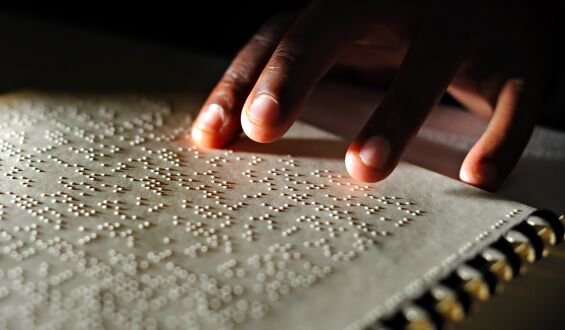
Lira, Uganda | THE INDEPENDENT | Visually impaired people in Lango sub region will now be able to read a complete version of the bible following the launch of the first-ever braille bible. Braille is a system that uses raised dots, to form a coded reading language for the visually impaired.
The bible is piled up with 43 volumes of 2.5 meters high and weighs about 45kgs. The bible was launched on Thursday by the Archbishop of the Church of Uganda, the Most Rev. Stephen Samuel Kaziimba Mugalu.
Speaking at Boroboro Cathedral ground, Kazimba asked the visually impaired in the region to make the best use of the bible in spreading the Gospel.
Simon Peter Mukhama, the General Secretary Bible Society of Uganda applauded Rt Rev. Prof Alfred Olwa, the Bishop of Lango Diocese for compelling the Bible Society to produce the braille bible. The Bible Society also donated 24 copies of the bible to Lango Diocese.
Willy Otono, a visually impaired Magistrate at Mengo Court said that having the Braille bibles is pleasant news for PWDs. He says that the bible will facilitate access to the scriptures by the visually impaired.
Rev. Simon Peter Omuno from Aboko Parish in Kwania district, says that the availability of a braille bible in the Lango language will make it easy for the blind to read and preach the gospel of God. He also says they need the Bible for spiritual growth.
The production of one braille bible costs between USD 400 (1.5 million Shillings), and USD 600 (2.2 million Shillings), according to Braille Bibles International, an organization that provides bibles in braille, large print, and audio formats to the visually impaired. This is around 50 times the cost of a standard printed bible.
The cost is mainly because braille is printed on thicker paper and takes up more room than standard printed text. A full braille bible is made up of a stack of at least 43 volumes.
As per the provisions in the 1995 Ugandan Constitution, the Convention on the Rights of People with Disabilities (CRPD), and national policies on PWDs, people with hearing and visual impairments must have access to information.
*****
URN
 The Independent Uganda: You get the Truth we Pay the Price
The Independent Uganda: You get the Truth we Pay the Price





